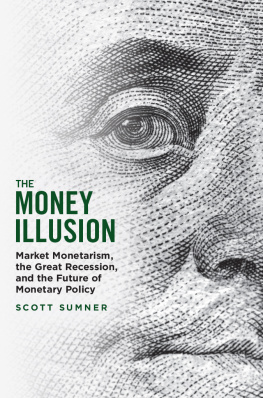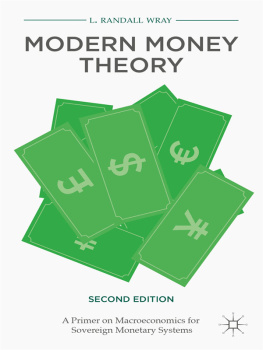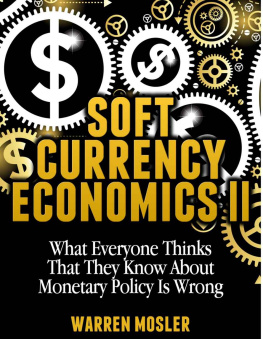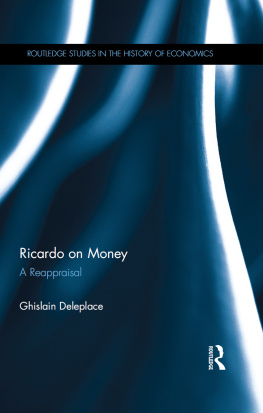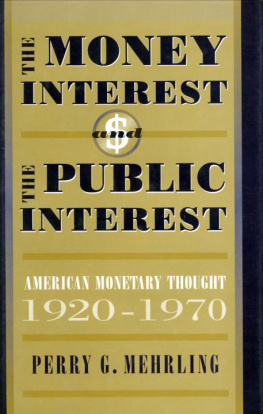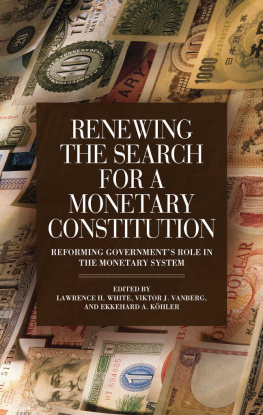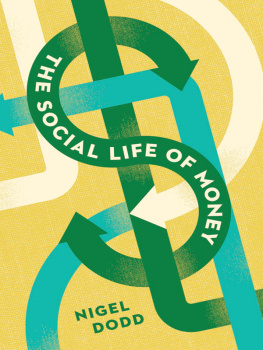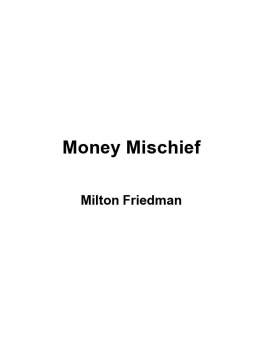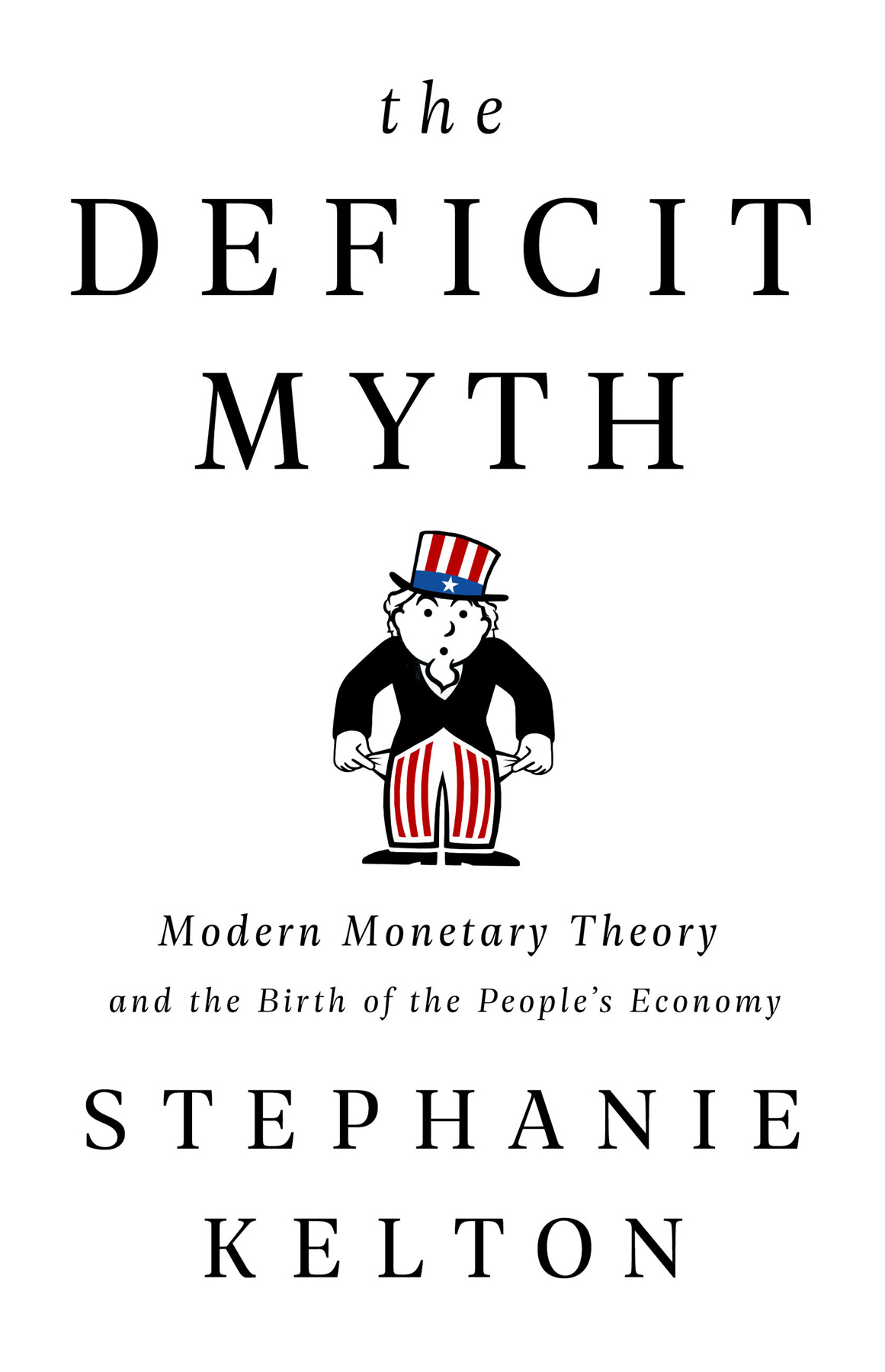Copyright 2020 by Stephanie Kelton
Cover design by Pete Garceau
Cover copyright 2020 Hachette Book Group
Hachette Book Group supports the right to free expression and the value of copyright. The purpose of copyright is to encourage writers and artists to produce the creative works that enrich our culture.
The scanning, uploading, and distribution of this book without permission is a theft of the authors intellectual property. If you would like permission to use material from the book (other than for review purposes), please contact permissions@hbgusa.com. Thank you for your support of the authors rights.
PublicAffairs
Hachette Book Group
1290 Avenue of the Americas, New York, NY 10104
www.publicaffairsbooks.com
@Public_Affairs
First Edition: June 2020
Published by PublicAffairs, an imprint of Perseus Books, LLC, a subsidiary of Hachette Book Group, Inc. The PublicAffairs name and logo is a trademark of the Hachette Book Group.
The Hachette Speakers Bureau provides a wide range of authors for speaking events. To find out more, go to www.hachettespeakersbureau.com or call (866) 376-6591.
The publisher is not responsible for websites (or their content) that are not owned by the publisher.
Library of Congress Cataloging-in-Publication Data
Names: Kelton, Stephanie, 1969 author.
Title: The deficit myth : modern monetary theory and the birth of the peoples economy / Stephanie Kelton.
Description: First edition. | New York : PublicAffairs, [2020] | Includes bibliographical references and index.
Identifiers: LCCN 2019059417 | ISBN 9781541736184 (hardcover) | ISBN 9781541736207 (ebook) | ISBN 9781541757110 (international)
Subjects: LCSH: Debts, PublicUnited States. | Budget deficitsUnited States. | Government spending policyUnited States. | Fiscal policyUnited States.
Classification: LCC HJ8119 .K46 2020 | DDC 339.5/30973dc23
LC record available at https://lccn.loc.gov/2019059417
ISBN: 978-1-5417-3618-4 (hardcover); 978-1-5417-3620-7 (ebook); 978-1-5417-5711-0 (international)
E3-20200507-JV-NF-ORI
For Bradley and Katherine
The Deficit Myth is simply the most important book Ive ever read. Stephanie Kelton carefully articulates a message that obliterates economic orthodoxy about public finance, which assumes that taxes precede spending and deficits are bad. Keltons work is on a par with the genius of DaVinci and Copernicus, heretics who proved that Earth revolves around the sun.
David Cay Johnston, recipient of the Pulitzer Prize, an Investigative Reporters and Editors Inc. Medal, and the George Polk Award
A remarkable book both in content and timing. A must-read that is sure to influence many aspects of policymaking going forward.
Mohamed El-Erian, chief economic advisor, Allianz
In a world of epic, overlapping crises, Stephanie Kelton is an indispensable source of moral clarity. Whether youre all in for MMT, or merely MMT-curious, the truths that she teaches about money, debt, and deficits give us the tools we desperately need to build a safe future for all. Read itthen put it to use.
Naomi Klein, author of On Fire: The Burning Case for a Green New Deal
Keltons game-changing book on the myths around government deficits is both theoretically rigorous and empirically entertaining. It reminds us that money is not limited, only our imagination of what to do with it. After you read it you will never think of the public purse as a household economy again. Read it!
Mariana Mazzucato, author of The Value of Everything: Making and Taking in the Global Economy
The Deficit Myth is a triumph. It is absorbing, compelling, andmost important of allempowering. Embracing a well-researched framework that focuses on how real-world economies actually operate, she lays out a realistic path to true economic prosperity. It is an approach that focuses on Main Street and not Wall Street and will permit us to not only revitalize the struggling middle class, but address critical social problems like chronic unemployment, poverty, health care, and climate change. We of course face many binding constraints on our ability to act, but Kelton argues that the intentional underemployment of our own resources that results from the pervasive influence of deficit myths should not be one. We have needed this book for a very long time. Everyone should read it, and then reread it, before it is too late to change course.
John T. Harvey, professor of economics, Texas Christian University
Keltons mission in this powerful book is to free us from defunct orthodox thinking about fiscal deficits rooted in the bygone era of the gold standard. Her theoretical canvas is modern monetary theory. At its core MMT offers a simple proposition: In a fiat currency world, the finances of we the people aint the same as a summing up of our individual budget constraints, because we the people cant go broke, only deficit-spend our collective self into inflationary excesses. In the prevailing era of too-low inflation, the macro policy implication should be obvious: We the people presently have far more fiscal space than the deficit scold, pay-for crowd preaches. Kelton is a gifted writer and teacher and I confidently predict that The Deficit Myth, brilliantly written and argued, will become the defining book on what MMT isand what it is not.
Paul Allen McCulley, retired managing director and chief economist, PIMCO, and senior fellow, Cornell University Law School
Clear! Compelling! Eye-opening and persuasive, The Deficit Myth is an adventure in the world of budgets, jobs, trade, banking, andabove allmoney. With the great force of common sense, Stephanie Kelton and the MMT team have broken through the closed circles of so-called sound finance, a stale orthodoxy that has weakened and impoverished us all. This book shows how they did it, and it blazes a path forward, toward a better world built on better ideas.
James K. Galbraith, The University of Texas at Austin
A robust, well-reasoned, and highly readable walk through many common misunderstandings. A must-read for anyone who wants to understand how government financing really works, and how it interplays with economic policy.
Frank Newman, former deputy secretary of the Treasury
It aint what you know that gets you into trouble. Its what you know for sure that just aint so.
MARK TWAIN
I remember when I saw a bumper sticker on the back of a Mercedes SUV in 2008 while I made my one-hour commute from Lawrence, Kansas, to my job teaching economics at the University of Missouri in Kansas City. It featured a man, standing slightly hunched, with his pants pockets turned inside out. His face bore a hardened, serious look. He wore red-and-white striped pants, a dark-blue jacket, and a top hat adorned with stars. It was Uncle Sam. Like the driver with this bumper sticker, many people have come to believe that our government is flat broke and that its budget is unable to tackle the most important issues of our time.
Whether the policy debate is health care, infrastructure, education, or climate change, the same question inevitably arises: But how are you going to pay for it? This bumper sticker captured a real frustration and anxiety that exists over our nations fiscal affairs, particularly with the size of the federal deficit. Based on how politicians across parties have railed against the deficit, its understandable why anyone would get enraged when thinking about our government behaving imprudently. After all, if we as individuals behaved the way the government behaves, wed soon be bankrupted just like the image of a destitute Uncle Sam.




